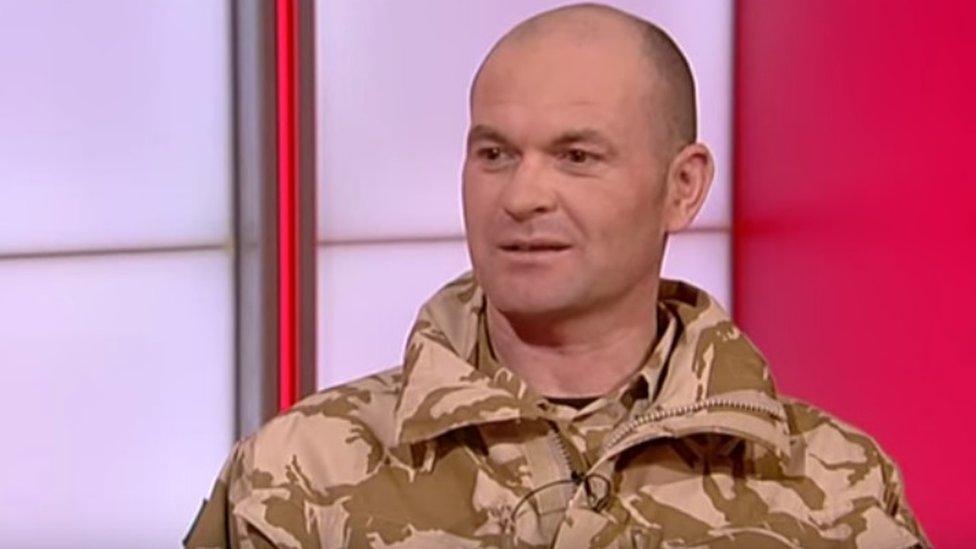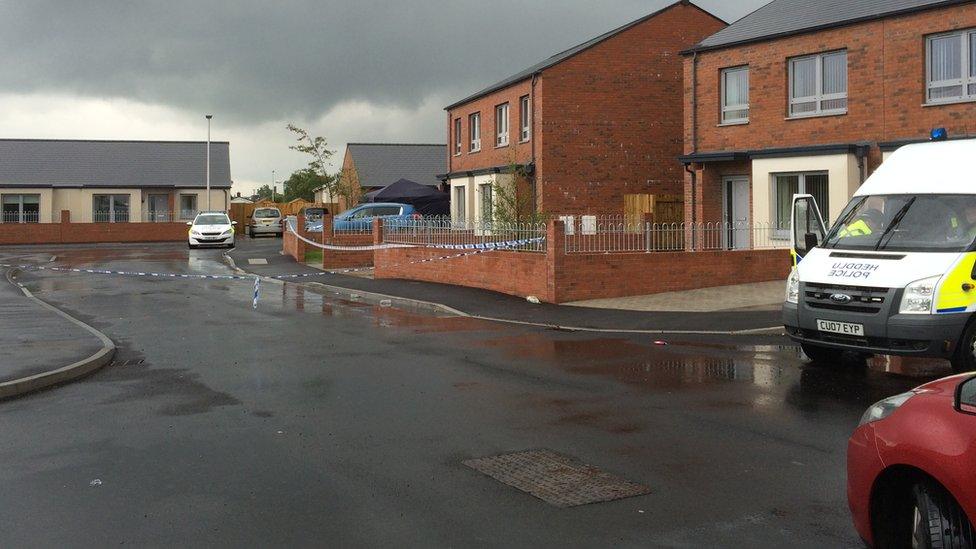Soldier's Taser wound 'contributed minimally' to death, inquest hears
- Published

In 2007, Spencer Beynon spoke to BBC Wales about his experiences in Iraq
A Taser wound "contributed only minimally" to the death of an ex-soldier, an inquest has heard.
Platoon Sgt Spencer Beynon, 43, from Llanelli, Carmarthenshire, died after officers were called in June 2016 over concerns about his behaviour.
He was diagnosed with post-traumatic stress disorder (PTSD) after tours of Afghanistan and Iraq.
Pathologist Dr Richard Jones told the inquest the "most significant" injury was a wound on Mr Beynon's neck.
The inquest heard previously that officers found Mr Beynon unresponsive on the floor with his back against the wall of a house in Llanelli, "bleeding profusely" from the neck.
Dr Jones told the inquest on Thursday that for a Taser to cause heart problems, the probes needed to cross the chest.
In Mr Beynon's case, the Taser struck his right arm and right wrist, he said.
He added that if the probes were not across the chest, then the heart is not going to be affected by the Taser discharge.
"I am excluding the possibility that the Taser caused a significant contribution [to death] in this case," he said.
"It has contributed only minimally."

Spencer Beynon died near his home in Llanelli
Dr Jones said the wound on the front and right-hand side of Mr Beynon's neck was "gaping open and about three centimetres deep".
"The most significant finding is the wound to the neck and the opening of the right jugular vein and blood loss."
He said the cut would have been caused by something like broken glass, adding he found wounds to Mr Beynon's right hand, typical from broken glass.
Dr Ami Jones, the emergency consultant called to the scene on the night Mr Beynon died, told the jury she found the veteran with a gash to the throat.
She described it as a large gaping wound and said he had lost a lot of blood, adding that the emergency services had twice shocked him but failed to restart his heart.
Toxicologist Simon Elliott told the inquest that tests on Mr Beynon showed positive results for amphetamines and cannabinoids.
He also said tests showed Mr Beynon used cannabis prior to his death.
The inquest also heard written evidence from Mr Beynon's GP, Dr Devichand, who described injuries which caused severe back pain and required strong painkillers.
Mr Beynon's stress and trauma from front-line service in Afghanistan, where he had seen men severely injured and had killed several men himself, had resulted in severe PTSD, the jury was told.
The inquest continues.
Related topics
- Published13 October 2021

- Published7 October 2021

- Published28 June 2018
